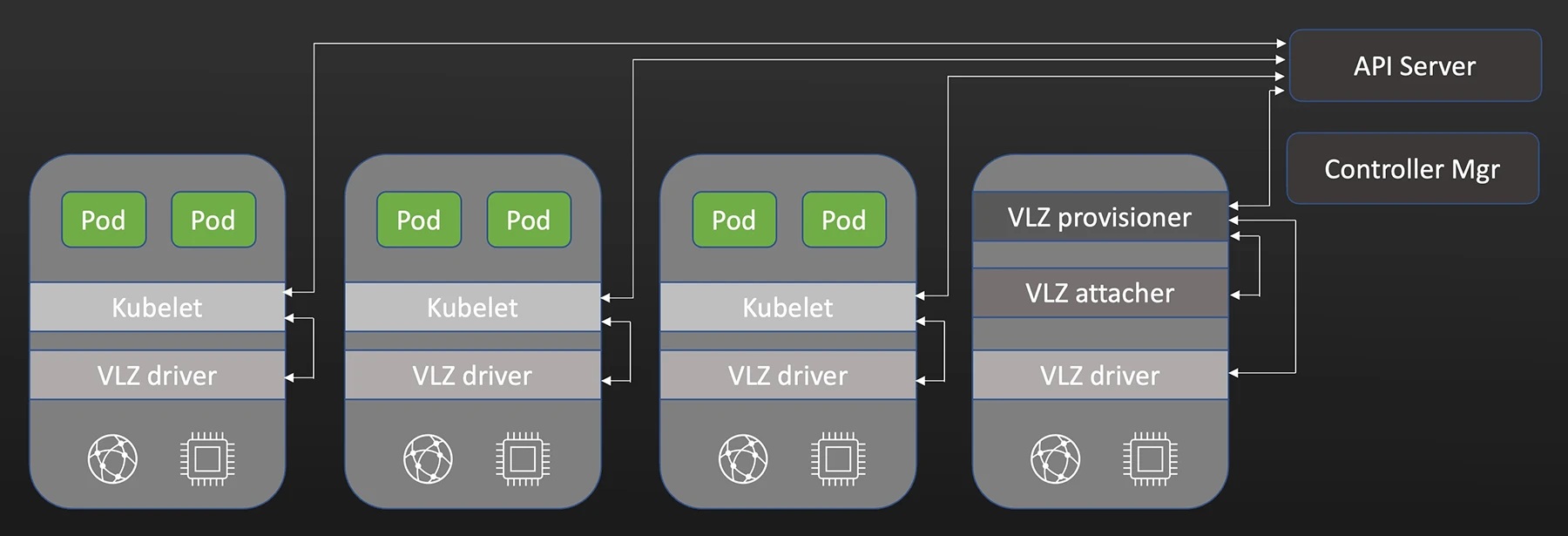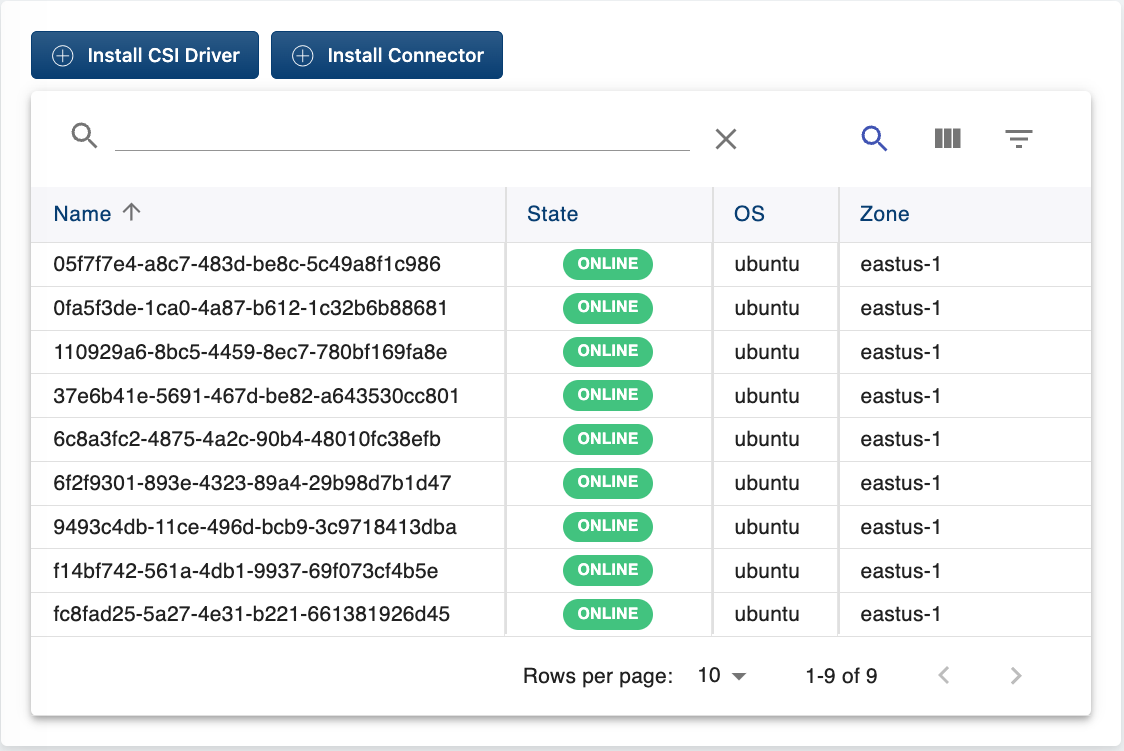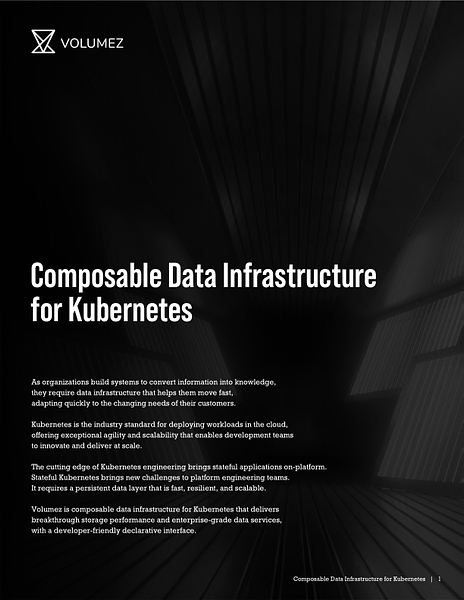Volumez
for Kubernetes
If you’re a DevOps or Platform Engineer working with Kubernetes, you’re likely familiar with the declarative-composable paradigm for compute and networking: specify the CPU, RAM, and connectivity requirements for an application, and the orchestrator handles everything else. However, when it comes to managing data on Kubernetes, things can get quite complicated. That’s where Volumez steps in to simplify the process. With Volumez, managing data on Kubernetes becomes as easy as managing compute resources. Installing our CSI driver using the helm chart takes just around 30 seconds. Once installed, all you need to do is specify the storage capacity, IOPS, latency, and zonal/regional resilience requirements, and Volumez will take care of the rest, seamlessly handling your data storage needs.
IOPS
0
M
Latency
0
μs
Bandwidth
0
GB/s
Per Persistent Volume, guaranteed
Performance
Run your most demanding database applications in the cloud with industry-leading performance. Volumez quality-of-service guarantees performance and eliminates the noisy neighbor problem in shared cloud environments.
Resilience
Protect your critical databases with extreme resilience. Volumez puts control of storage resilience directly in the hands of DevOps who simply specify the number of simultaneous media, server, and zone failures your data needs to be resilient against. Volumez self-healing architecture continuously monitors your data paths and responds instantly to cloud infrastructure failures, keeping your critical applications online.
Agility
Innovate faster with cloud-native agility. Every Volumez data path includes enterprise-grade data services with the same features, performance, and API in every cloud and data center. Lightning-fast snapshots enable sophisticated multi-zone, multi-region, and multi-cloud deployment strategies that keeps your infrastructure moving at DevOps speed.
Deploy in seconds

The Volumez helm chart deploys the CSI driver components:

And registers each worker node with the Volumez control plane:

Policies are declarative templates for the characteristics of Persistent Volumes. Policies are typically maintained by Platform Engineers and provide guiderails for DevOps during the provisioning process:
Play Video
To publish a policy, simply create a Storage Class that references the policy:
apiVersion: storage.k8s.io/v1
kind: StorageClass
metadata:
Name: postgres-prod
provisioner: vlz
volumeBindingMode: WaitForFirstConsumer
parameters:
Policy: postgres-prod
VolumeType: file
allowVolumeExpansion: true
apiVersion: v1
kind: PersistentVolumeClaim
metadata:
name: proddb
spec:
accessModes:
- ReadWriteOnce
resources:
requests:
storage: 4096Gi
storageClassName: postgres-prod
